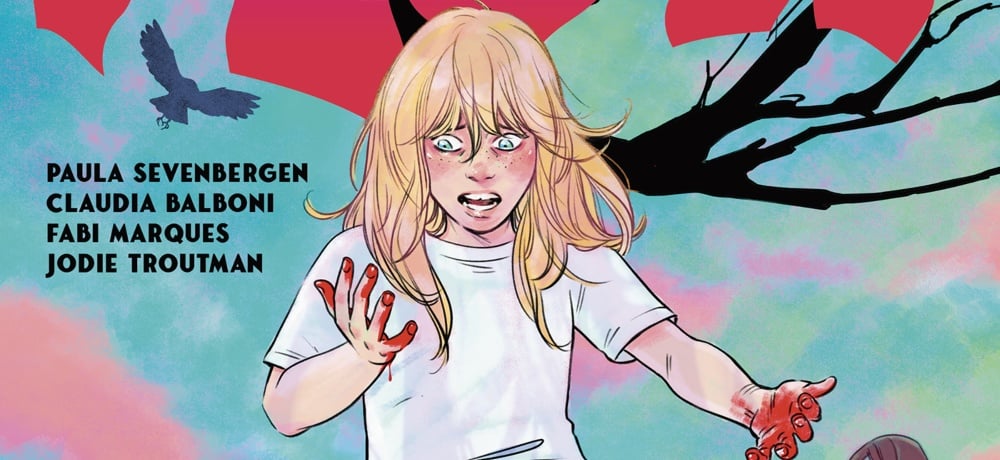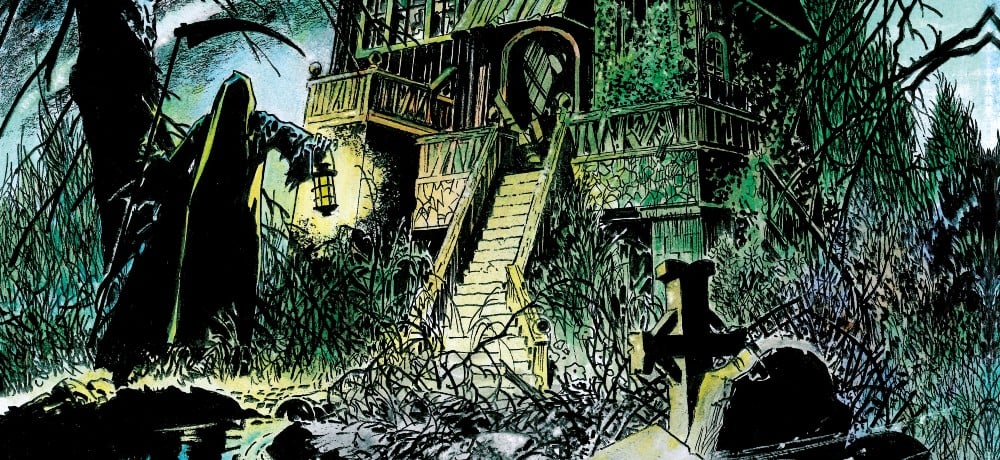






Cults and their leaders have always equally repulsed, fascinated, and terrified me. The repulsion and terror are obvious markers for any sane person, but some would rather not have it in their lives at all, thank you very much. This is also a lucid and healthy response. But in horror we look for the cathartic in the carnal; and while Bad Dreams (1988) spends a great deal of effort mining a very similar vein as A Nightmare on Elm Street 3: Dream Warriors (1987), it succeeds in carving out its own modest slice in the late ‘80s landscape.
Released stateside in April by Twentieth Century Fox, Bad Dreams made back its $4 million dollar budget opening weekend, but petered out after it pulled in just over $9 million total. A profit, yes, but not the big numbers they were hoping for based on what they thought was a foolproof Elm Street format. Oh, and the critics didn’t think much of it either. (Surprise!) Given some distance from its obvious influence, however, the film plays well as an effective thriller with an especially chilling performance from Richard Lynch as Harris, the cult leader.
Our film opens with The Chamber Brother’s Time Has Come Today blaring on the soundtrack as we descend on Unity Fields, Harris’ commune littered with horribly wigged hippies ready for their final reckoning at the hands of their leader and his metal tub full of gasoline. And they sure do get it; a ladleful poured over the heads of his faithful flock results in a four alarm fire that immolates all…but one: adolescent Cynthia, who survives, but is unconscious and in a coma when found.
Flash forward 13 years, and Cynthia (Jennifer Rubin – Dream Warriors) suddenly awakens from her slumber in a psychiatric hospital run by Dr. Alex Karmen (Bruce Abbott – Re-Animator), who immediately puts her in his group therapy to acclimate her to her new reality, at the behest of his superior, Dr. Berrisford (Harris Yulin – Scarface). So off she goes and meets the other patients in the borderline personality session: the cocky and volatile Ralph (Dean Cameron – Summer School), chain smoking trash rag journalist Miriam (Susan Ruttan – L.A. Law), the fragile Lana (E.G. Daily – 31), and other troubled souls including a married couple whose only dilemma seems to be a need to copulate whenever possible.
As Cynthia tries to adjust to her new surroundings, an old friend appears to her; and whether he shows up in his pristine state or post arson party, Harris has taken a liking to her session pals. So much so that he takes each and every one back with him to Unity Fields, whether they want to go or not. To the staff it looks like suicide, but Cynthia knows that Harris’ sway over his flock is hard to break – even from beyond the grave.
Bad Dreams is a film that desperately needed the time and space apart from the era it was born; coming one year after Dream Warriors, it was a very obvious attempt to cash in on Freddy’s success and the turn away from well-worn stabfests in the latter half of the decade. From the title, to the group therapy, to the spectral harassment of Harris, Bad Dreams went out of its way to remind us of the type of horror films we wanted to see at the time, or at least what the studio thought we wanted.
The truth is, the Freddy Formula is so easily identifiable that releasing this soclose after Dream Warriors smacks of nothing but pure commercialism. But viewed now, Bad Dreams offers a solid look at manipulation and cult of personality that was harder to discern through our red and green coloured glasses at the time. Harris (in an insidiously creepy turn by Lynch) is very closely modelled after Jim Jones, narcissistic glory in full effect, a leader amongst lost followers. Like any cult, the promise of salvation is always just one step away until that very salvation is staring you down from the flint side of a Zippo. The opening scene knows this well; Andrew Fleming (The Craft)’s tight direction showcases the blind desperation between Harris and his flock – without them he has no audience to feed his deranged ego, and without him they have nowhere to channel their sense of displacement.
Cynthia then, and her break from the cult and subsequent rebirth at the psychiatric hospital, is the through line that propels the story beyond teen fare (not that there’s anything wrong with that); Ruben’s sympathetic portrayal of essentially a little girl lost in a new world is at once heartbreaking and brave, and is a strong testament to her ability to carry a picture on her own. The group therapy angle also moves away from Elm Street by inverting the danger; whereas Freddy is a common threat to the kids of Westin Hospital, each of Harris’ victims are unaware of who he even is (other than the news from 13 years earlier) and have no connection to him – the only thread being Cynthia and her growing paranoia.
This is what really sets Bad Dreams apart from the Elm Street series; it’s a small increment depending on how much you want to invest, but Harris seems to be merely a figment of Cynthia’s mind as opposed to a groupthink boogeyman, resulting in a certain sadness for her lonesome plight. Karmen does try to help her, but again these visions are but her own, up to a point that is.
There is a twist, you see, and while the “how” makes perfect sense, the “why” is a particular puzzler. I won’t spoil it, but you’ll be working on motive long after the credits roll. But while you’re doing that, don’t forget to lean back and watch Harris work his magic in ways his petrol punch couldn’t; building high dives, acid gargling, exhaust fan nookie are only some of the ways that Bad Dreams reminds you that this isn’t a Lifetime programmer. (Not that there’s anything wrong with that, either.)
Having a mature cast certainly helps to drag the material into a different light; again, it’s all about increments, but there’s a lot of veteran talent on display, each fleshing out characters who on the page would have singular traits (The One Who Smokes, The One Who Screws, The One With The Wrestling Eyebrows). While I wouldn’t say it adds panache necessarily, it does afford a comfortable “in” for the viewer, and in the casting of Cameron and Ruttan, a quirkiness unique to themselves.
While Abbott offers a reliable and solid performance, Bad Dreams is really a dance between Lynch and Ruben. Their connection is set from the opening moments, and the screenplay by Fleming and Steven E. de Souza (48 Hrs.) wisely focuses on that connection. By doing so, it offers not only a physical release for Cynthia by the film’s end, but an emotional break that is more cathartic than sending a demon back to a dream world. Which isn’t to say that Bad Dreams equals Dream Warriors in style or heart, but it does at least offer a lot more empathy for its main character than its cynical sheen would suggest. For that alone, it deserves to be saved from the cinematic fire.
Bad Dreams is available on Blu-ray from Scream Factory as part of a double feature with Visiting Hours.
Next: Drive-In Dust Offs: NIGHTMARE (1964)